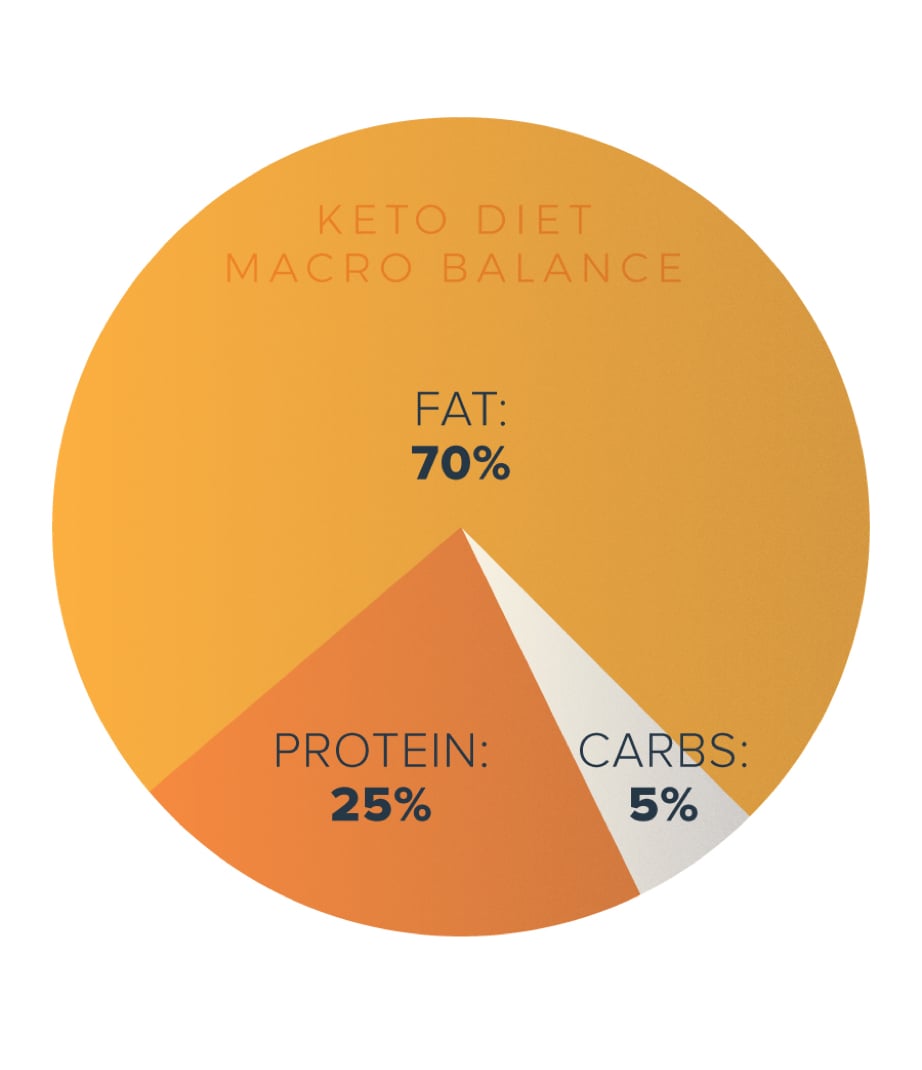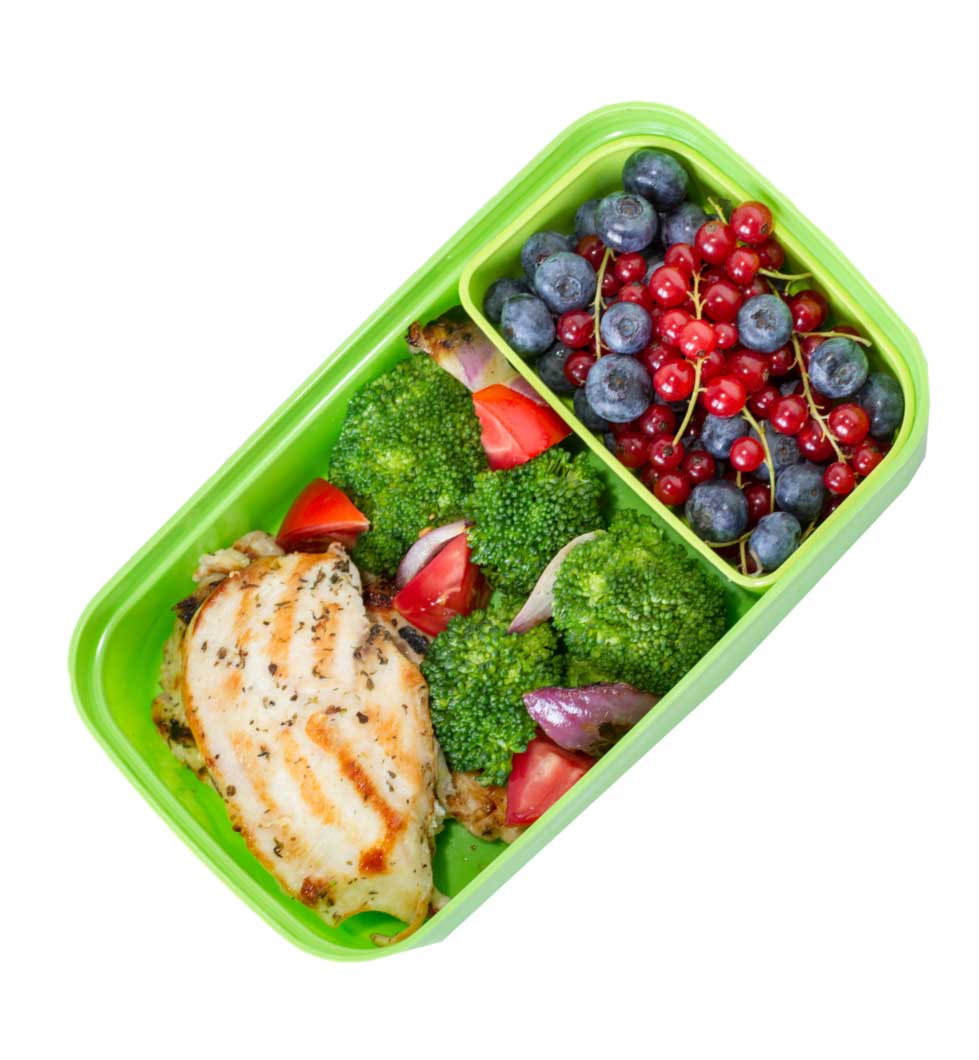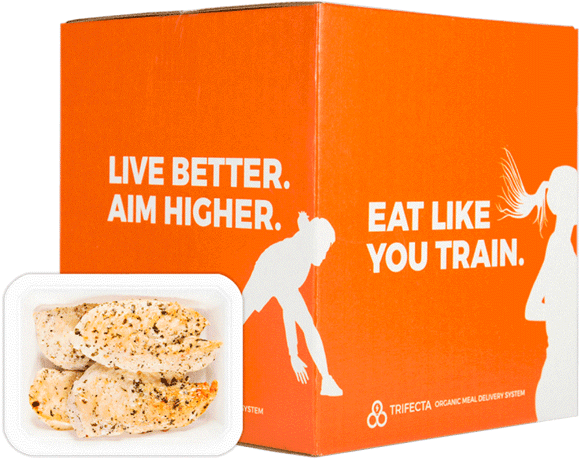Keto Macro Calculator
Become a fat burning machine!
In just a few minutes you can calculate the exact number of carbs, fat, and protein you should eat each day to achieve ketosis and reach your goals on a keto diet.
In just a few minutes you can calculate the exact number of carbs, fat, and protein you should eat each day to achieve ketosis and reach your goals on a keto diet.
Enter your gender and age to get started. Then enter your height and current weight. You’ll learn exactly how many grams of net carbs, fat, and protein you need each day to get results and crush your keto diet. Whether your looking to build muscle or lose weight, macros are key.
Next, provide your workout routine, starting with strength training. Select the appropriate activity level: light activity, moderate activity, heavy activity, or athlete. Input how many days you lift weights each week, how many minutes per training session.
Next up is cardio! Repeat the process and select the appropriate number of days per week, how many minutes per workout, and your level of intensity.
Once your details are entered, select your nutrition goal. Are you looking to lose weight, gain muscle, or maintain your current weight? From here, our proprietary formula will use a combination of your personal info, workout schedule, and nutrition goal to customize a keto macro plan designed for you.
Enter your email address and name to get your results emailed to you right away! Then check your email and get ready to start tracking your keto macros!
The keto diet is designed to provide a very specific macro range in order to promote ketosis and trick your body into metabolizing more fat for energy, turning you into a fat-burning machine!
Ketosis is the result of limiting carbs to a tiny percentage of your total calories. The ketogenic diet also emphasizes high fat intake overall to keep you feeling satisfied even when you’re in a calorie deficit.
Keto macro percentages typically call for more than 50% of your calories to come from fat and less than 5% of your calories to come from carbohydrates.

Many keto macro calculators only follow a suggested macro percentage, but don’t take into consideration your unique fitness and nutrition needs. Our keto calculator uses a proprietary formula that combines your age, weight, height, gender, and workout routine to give you the most accurate keto macro recommendations possible.
First, your total daily energy expenditure (TDEE) or daily calorie needs are assessed. This is the amount of calories you need to eat each day to support your body’s daily functions, movement, and exercise.
Then your individual macros are calculated - telling you exactly how much protein, fat, and carbs you need to succeed on a ketogenic meal plan. This is easy because macros (macronutrients) are where all of your calories come from!
Each macro provides different health benefits and a different amount of calories per gram.
Your protein needs are directly related to your lean mass and your fitness goals - the more muscle you have, the more protein you need to maintain it. Additionally, increased protein intake supports fat loss and muscle gain in unique ways.
Your carbohydrate needs depend on how active you are and your fat intake depends on your total energy needs.
Learn more about how your macros were calculated with this complete keto macro calculating and tracking success guide.
-1-1.png)
Unlike a traditional low carb diet, a ketogenic diet restricts carbs to help you get into and stay in ketosis.
It is commonly told that 20 grams of carbs or less a day is the magic number, but there is no research to suggest this is the case for everyone. Most people will need to eat less than 20 to 50 grams of carbs a day, but some people can have even more.
This calculator gives you a more specific carb goal based on your activity level. More active individuals, especially those with a lot of muscle, can process a lot more carbohydrates than those who don’t do any heavy lifting or high-intensity training.
You’ll also want to make sure you use net carbs, not just total carbs when tracking your daily intake. Fiber is a type of carb that is not easily absorbed by the body - meaning it won't affect blood sugar levels the same way sugars do.
To get your net carb amount, take your total carbs each day and subtract the amount of fiber you consumed.
A keto diet can help support weight loss in a few different ways, including decreased appetite, and improved fat burning.
Plus, if you don’t like traditional lean diet foods, going keto can make you enjoy your meals more. And ultimately, the best diet for you is the one you can stick to!
By restricting carb intake to super low levels and increasing your intake of healthy fats, your body becomes really good at using fat for energy - and this also means you burn fat really efficiently.
Protein is also important. Many keto enthusiasts claim that too much protein can mess with your ability to enter ketosis, but that’s not proven. Additionally, the many benefits associated with higher protein intake for fat loss, like decreased cravings, reduced hunger, and lower body fat percentage, far outweigh this possible risk.
It's crucial to understand that going keto alone doesn’t automatically mean fat loss, the number of calories you consume each day is still the most important factor. In other words, if you want to lose weight on keto, you have to pay attention to how much you are eating.
Luckily all of the calories you eat come from macros, so learning your daily macro needs and tracking them each day is the most efficient way to losing weight and sticking to your keto meal plan.
Learn more about how your calories are calculated and your exact daily calorie needs with this free TDEE calculator.
It can feel like a challenge to control your calories and keep your carbs low enough if you aren’t tracking your macros.
A macro-friendly app, like Trifecta, is by far the easiest way to count your daily keto macros since it does all the hard work for you - including adjusting for net carb counts!
Make sure you are hitting your daily keto goals and getting results by tracking everything you eat and drink each day.
Download the Trifecta App to get started.
Crushing your keto macro goals is all about food choices. You’ve got to know what foods are high in carbs and the best sources of healthy fats to get the most out of your meal plan. It’s not all bacon and cheese, all the time!
Carbs come from everything that grows out of the ground, including fruits and vegetables, so balancing good nutrition with very low carb intake can feel tough at times. Knowing the net carb amounts for these foods is key.
In addition, not all fats support good health. Look for more plant-based sources like oils, nuts, seeds, and avocados. And opt for quality proteins that also support good health.
The best low carb foods include:
Get a complete list of the best foods to build your keto meal prep.

Keep your keto diet on track without sacrificing good nutrition, with plenty of low carb ingredients that contain high amounts of healthy fats, vitamins and minerals. Stop fussing about your diet and get keto meal delivery!
Our chefs cook from scratch and let the ingredients speak for themselves instead of using artificial flavors or colors.
